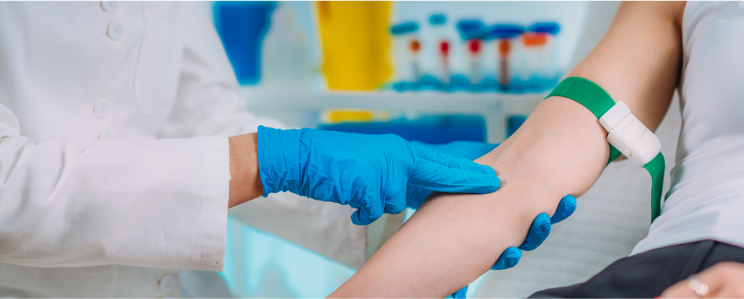Some Known Questions About Northeast Medical Institute - New Haven Campus Phlebotomy Course & Cna Class.
Some Known Questions About Northeast Medical Institute - New Haven Campus Phlebotomy Course & Cna Class.
Blog Article
Getting The Northeast Medical Institute - New Haven Campus Phlebotomy Course & Cna Class To Work
Table of ContentsNortheast Medical Institute - New Haven Campus Phlebotomy Course & Cna Class - TruthsAll About Northeast Medical Institute - New Haven Campus Phlebotomy Course & Cna ClassExamine This Report about Northeast Medical Institute - New Haven Campus Phlebotomy Course & Cna ClassFacts About Northeast Medical Institute - New Haven Campus Phlebotomy Course & Cna Class UncoveredNot known Details About Northeast Medical Institute - New Haven Campus Phlebotomy Course & Cna Class Top Guidelines Of Northeast Medical Institute - New Haven Campus Phlebotomy Course & Cna ClassNortheast Medical Institute - New Haven Campus Phlebotomy Course & Cna Class Things To Know Before You Get This
Training courses provide substantial practice around. Trainees find out just how to determine the best blood vessels for blood draw. Next, they learn just how to insert a needle, and just how to collect blood successfully while guaranteeing patient comfort. Trainees hone this skill with both publication understanding and functional, hands-on experience. Phlebotomy training positions a solid emphasis on excellent record-keeping. https://marvingordon.bandcamp.com/album/northeast-medical-institute-new-haven-campus-phlebotomy-course-cna-class.
Tape monitoring is important in staying clear of errors and guaranteeing that the right tests are carried out on the correct samples. PCT Courses. It also plays an essential function in the overall client care process, helping to identify and treat. As phlebotomists often engage with individuals, consumer solution skills are a large part of the training
Facts About Northeast Medical Institute - New Haven Campus Phlebotomy Course & Cna Class Uncovered
The phlebotomist is the "face" of the research laboratory. As a crucial lab group participant, the phlebotomist accumulates blood samples for analysis, leading to precise individual diagnosis.
Phlebotomy is the medical method of attracting blood from a person for numerous objectives, such as analysis testing, transfusion, or contribution. https://www.ted.com/profiles/47186180. The Phlebotomy Program at Elgin Neighborhood College is a hectic, affordable method to earn a phlebotomy certification and enter the healthcare field.
The Greatest Guide To Northeast Medical Institute - New Haven Campus Phlebotomy Course & Cna Class
How to Become a Phlebotomist? There are several means to go into the health care career field. When picking a function to seek, you are most likely thinking about exactly how much training or education is called for, and for how long it will take in the past you can start functioning in the area. One role that is expanding, essential, and an excellent, quick foot-in-the-door is Phlebotomy.
Bureau of Labor Data expects 10% task development in Phlebotomy in between 2021-2031 with 21,500 job openings anticipated yearly throughout the nation. The path to becoming a phlebotomist can be finished in around 18 weeks.
Particularly, phlebotomists: Gather blood samplings for laboratory testing, transfusions, study, or blood donation. Because blood exams are increasingly vital and commonly made use of, phlebotomists work with patients of all ages in a selection of settings.
The Of Northeast Medical Institute - New Haven Campus Phlebotomy Course & Cna Class
Blood draws are growing in popularity, and some phlebotomists are now finding possibilities to accumulate samplings in clients' homes. Wherever they work, phlebotomists are an essential component of the care group and have meaningful patient call. Laboratory outcomes are liable for 70% of health care medical diagnoses, and blood draws are vital to numerous lab examinations.
"The prep work of the individual, collection and handling of the specimen, and the correct storage and documentation of the sampling is vital for the laboratory professionals to be able to medical diagnosis condition. That preliminary job is all the job of the phlebotomist." At NWHSU, students preparing to end up being phlebotomists can finish the Phlebotomy Training Program.

5 Simple Techniques For Northeast Medical Institute - New Haven Campus Phlebotomy Course & Cna Class
You will gather, manage, and transportation examples to the laboratory for screening, and perform easy tests with quality checks. After ending up the training course and professional technique, you'll prepare to take a nationwide phlebotomy board test. Several medical care specialists begin their professions as phlebotomists, then select their following action.
"The path to a profession in the medical diagnosis, therapy, and prevention of condition is mapped out for a person who desires an elderly duty in a research laboratory setting. And it can all begin while the expert is earning an earnings as a phlebotomist," explains Audrey Anderson - CNA Training. The Phlebotomy Training Program is also a suitable launching pad for individuals that already operate in health centers and centers
Northeast Medical Institute - New Haven Campus Phlebotomy Course & Cna Class - The Facts

Institutions can use these guidelines to establish standard operating treatments.; participation on the component of individuals; quality of laboratory tasting.
Northeast Medical Institute - New Haven Campus Phlebotomy Course & Cna Class - Questions
The phlebotomist should operate in a silent, clean, well-lit location, whether dealing with outpatients or inpatients. Quality control is a vital part of best practice in infection avoidance and control (1). In phlebotomy, it aids to reduce the possibility of a mishap. Table 2.1 listings the major parts of quality control, and discusses why they are very important.
Report this page